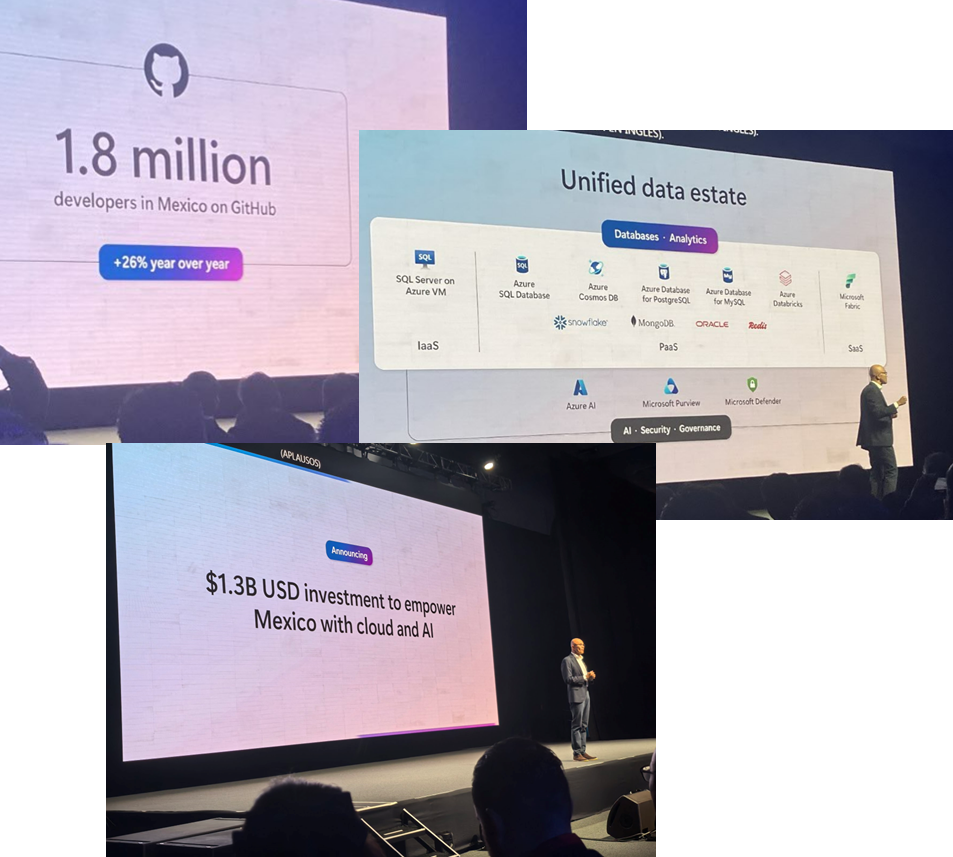Microsoft AI Tour 2024 - Mexico City
- EN
- ES
I had the incredible opportunity to attend the Microsoft AI Tour, and I want to share some of the key takeaways from the talks I attended.
This blog will be a bit lengthy, but I trust it will be very useful if you’re interested in how artificial intelligence is transforming various industries.
My main notes and findings were:
- AI should be driven by business needs rather than just technology.
- The biggest challenge is the shortage of talent in AI.
- Manufacturing companies are already exploring and experimenting with AI.
- Mexico is one of the countries that will invest the most in AI in the coming years.
- At the end of the blog, I’ll include my notes on the keynote by Satya Nadella, CEO of Microsoft, as a closing to this analysis.
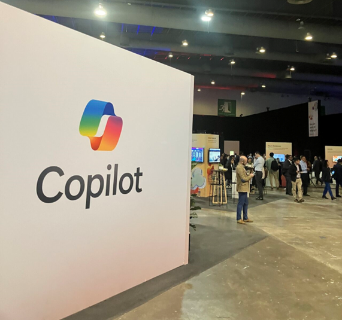
#
Alfonso Rodriguez
Director of Product Marketing, Microsoft
- Isolated Data = Obsolete: The volume of data is an investment.
- AI in Manufacturing:
- 64% of manufacturers are researching AI.
- 35% are implementing AI in production.
- 58% plan to increase investment in AI.
- Organizational Challenges:
- Talent shortage in design and engineering.
- Insufficient model and data maintenance.
- Future Opportunities: Focus on design, development, and operations.
#
Diego Bustos
Chief Data/Analytics Officer, Grupo Bimbo
- Digital Transformation: Essential for business survival.
- Challenges: Adoption and scalability of AI.
- AI Approach: Should stem from business needs, not just technology.
- AGILE Methodology: Continuous improvement and product evolution.
- Prioritization: Return on investment and alignment with global strategies.
#
Jose Luis Apodaca
Head of Global Data Science, Cemex
- AI and Digital Transformation: Key to extracting value from data.
- Scalability: Necessary infrastructure to support systems.
- Methodology: Two tracks: OPEX (exploration and pilot) and KAPEX (development and implementation).
- Future Vision: Become a data-driven cognitive company.
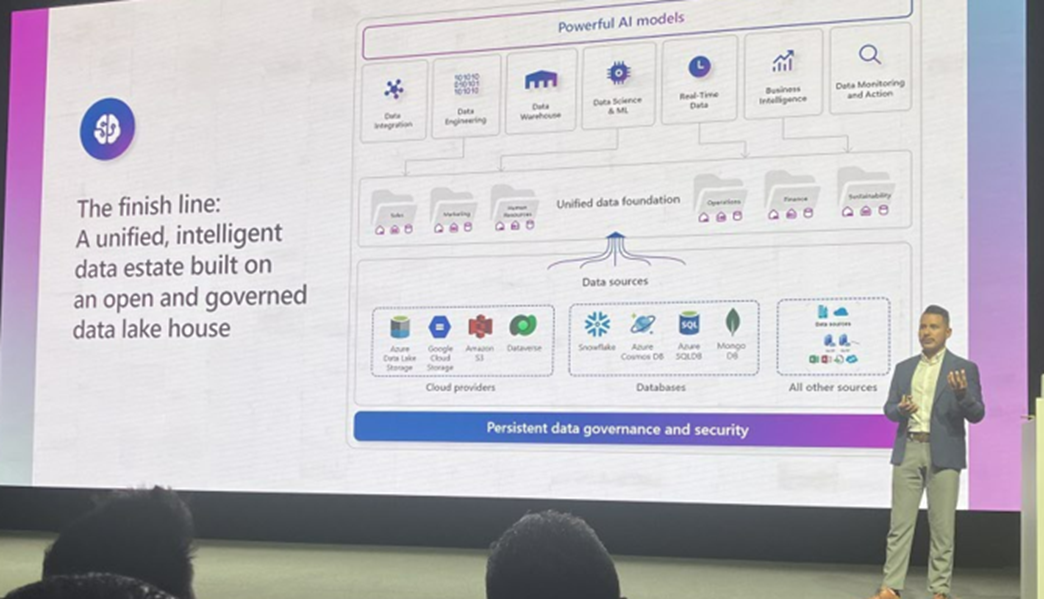
#
Carlos Herquino
Fabric Product Marketing Lead for Industry
- Current Challenges: Data quality; Microsoft Fabric created for end-to-end data cleansing.
- Transformation through AI:
- Impact on three pillars: individuals, teams, and companies.
- Time Enrichment: Improving business processes for employees and customers.
- Requirements for Generative AI Models: Powerful models and AI platforms. Unified and clean data.
- Risks of Non-Unified Data: Data copies and structural inefficiency.
- Steps for Data Unification:
- Unify data in an open government lake house foundation.
- Harmonize data for AI and establish real-time connections.
- Implement a Unified AI Platform.
- Data Flow: Data → Microsoft Fabric → Azure AI Studio.
#
Mike Hulme
General Manager, Azure Digital Apps and Innovation
- Reinventing Applications: All applications will be reimagined with generative AI.
- Application Projections: Expected to see 1 billion logical applications by 2028, defined by AI.
- AI Adoption: Over 80% of companies will use generative AI APIs by 2026 (compared to less than 5% in 2023).
- Growth and ROI: Advantage of strategic disruptors: 250% ROI.
- Opportunity Identification: Expert knowledge and a tech stack that supports Open Standards are crucial.
- Azure AI: Enables integration at all steps of applications.
- Microsoft Trustworthy: A program that ensures data privacy and transparency.
- Development Efficiency: 50% reduction in the time to develop new applications.
- Launching Azure Innovate: Helps identify areas for improvement and migration.
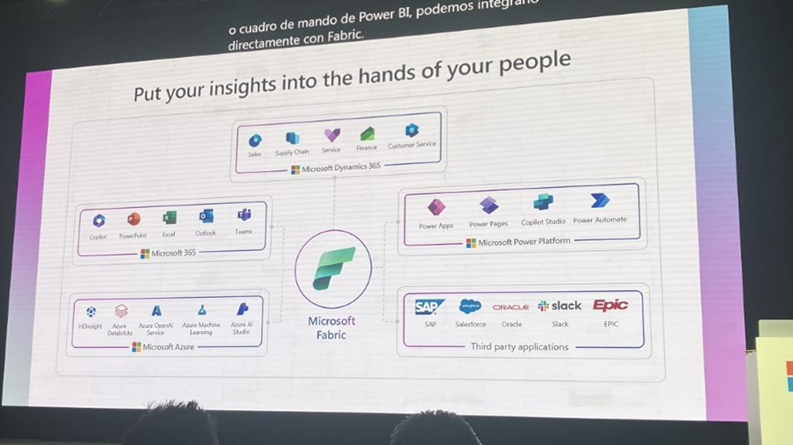
#
Paul Yu
Developer Advocate
- Intelligent Applications:
- Interaction through natural language.
- Data-driven and personalized.
- Continuous learning and improvement.
- AI Integration: Facilitating the addition of AI in applications using the cloud and microservices.
- CloudNative Features: Speed, agility, and modern design.
- Resilience: The cloud enhances resilience; adopting DevOps and automation is key.
- AKS (Azure Kubernetes Service): Ideal for deploying applications in the cloud.
- Key Takeaways: Deploy quickly and securely, with rollback capability.
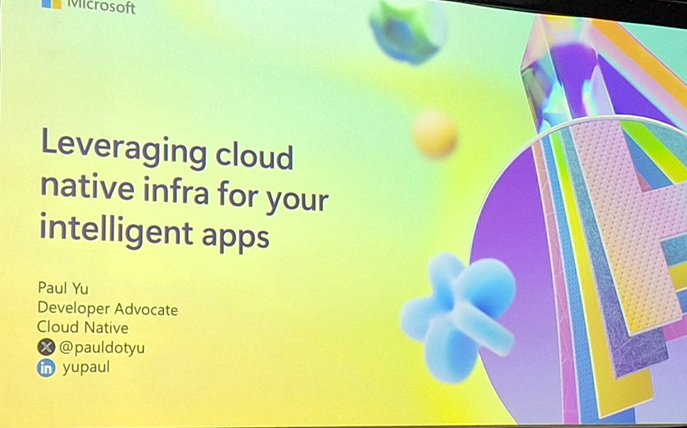
#
Dona Sarkar
Chief Troublemaker, Microsoft
- Developers: Expected to train models and create bots with AI.
- This is our third rodeo:
- Digitizing data.
- Uploading it to the cloud.
- Training AI with the data.
- The Reality of AI:
- Nonsense: Critiques about reliability (unfulfilled promises).
- Real Business: Non-techs solving real problems; new job roles emerge.
- Language Models:
- SLM (Small Language Model): Specific and viable for concrete objectives, executable in the cloud and locally.
- Model Evaluation: Compare public metrics and manually evaluate responses.
- Choosing the Model:
- Use case specificity.
- Available resources.
- Deployment environment.
- Desired performance.
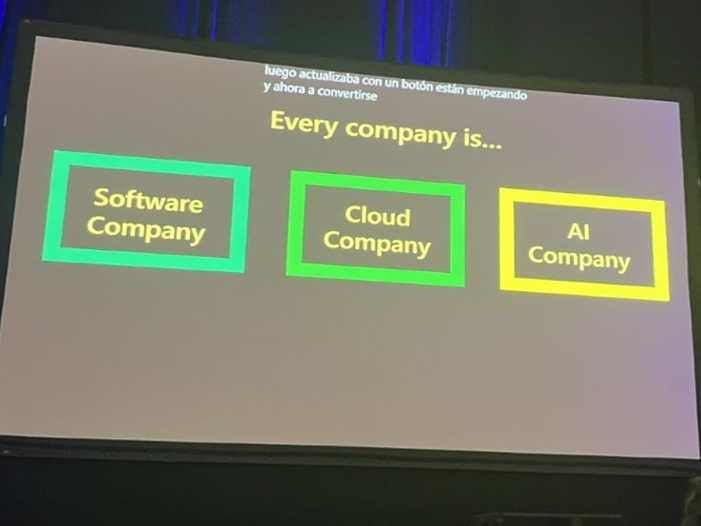
#
Satya Nadella
Microsoft CEO
- Investment: $1.3 billion USD over three years for AI and cloud infrastructure in Mexico.
- AI for Good: Focus on health, connectivity, and sustainability challenges.
- SMEs and AI: 57% of Mexican SMEs already use AI for efficiency and decision-making.
- Ethical Innovation: Commitment to the ethical use of AI, inclusive growth, and sustainability.
- Skills Development: Emphasis on training for AI adoption across diverse demographics.
